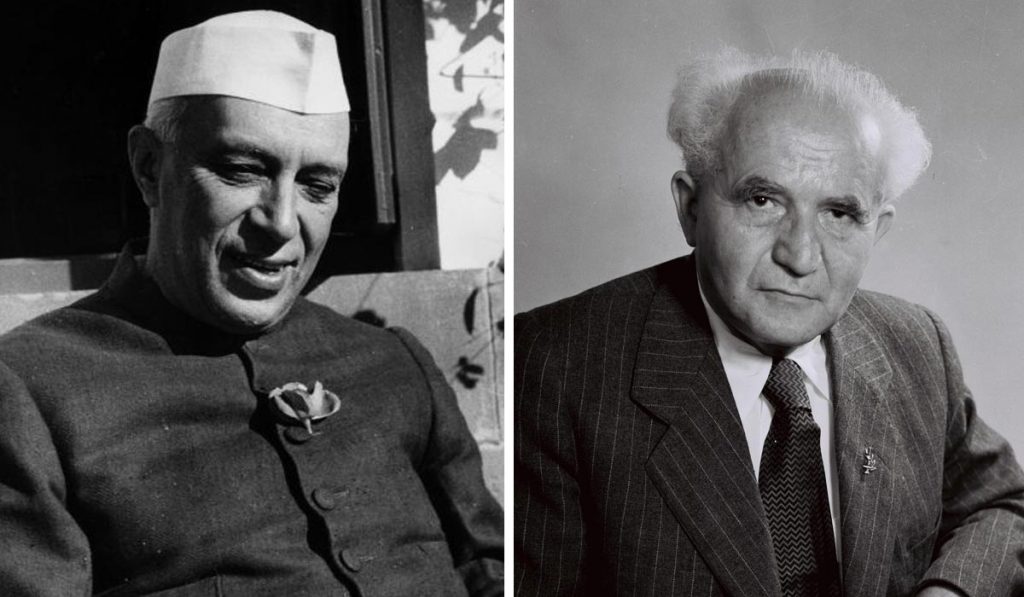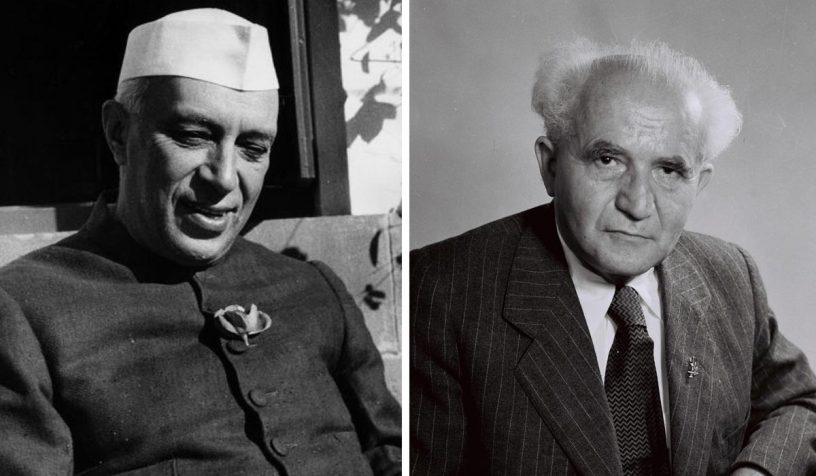
India’s first Prime Minister Jawaharlal Nehru (Left) and Israel’s first Prime Minister David Ben-Gurion remained on non-speaking terms, but they both represented qualities of leadership in Asia, says the author.
Author
Khinvraj Jangid, Associate Professor & Director of Jindal Center for Israel Studies, Jindal School of International Affairs, O.P. Jindal Global University, Sonipat, Haryana, India.
Summary
Jawaharlal Nehru, India’s first Prime Minister (1947-64), and David Ben-Gurion, Israel’s first Prime Minister (1948-54; 1955-63), played substantial roles in shaping two modern nation-states in post-Colonial Asia.
The article is anchored by a comparative study of the two leaders who influenced nation-building through their individual political values and ideological convictions.
The key question posed here is what similarities existed in the nation-building roles these figures played and how they may have contributed to the trajectories followed by their respective nations.
Nehru and Ben-Gurion were both modernists in terms of their political visions of a secular, socialist-democratic and egalitarian state.
Although the two men never met and remained on non-speaking terms because India had reservations about forging ties with Israel, they both represented qualities of leadership in Asia.
Published in: Israel Studies
To read the full article, please click here


